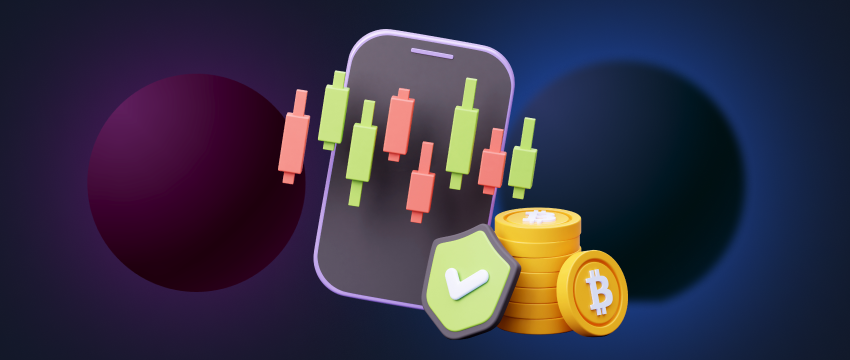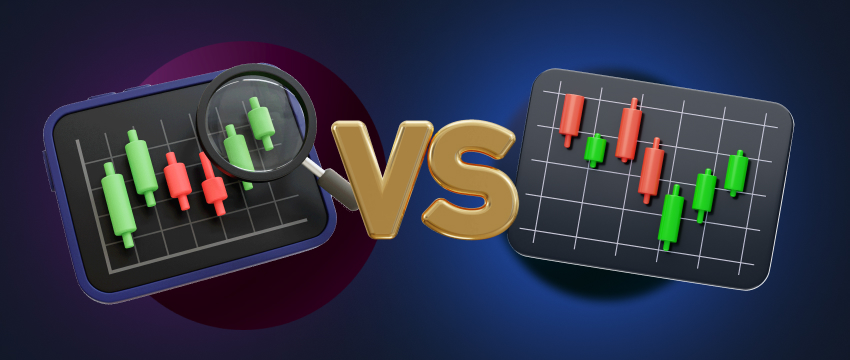Digital currencies, also known as cryptocurrencies, have transformed how people transact and store value. They have created a new financial ecosystem that is decentralised, and potentially more secure and transparent than traditional centralised financial systems.
The first and possibly one of the most popular digital currencies to be created in 2009 was Bitcoin. Since then, thousands of other digital currencies have been developed. The impact of digital currencies on the global economy has been significant and their evolution continues to shape the future of finance.
How has the impact of digital currencies on the global economy been felt?
The impact of digital currencies on economies worldwide has been significant.
Traditional financial systems are being notably challenged in terms of control and privacy. For one, these systems are typically centralised, i.e., controlled by banks and governments. In contrast, digital currencies are decentralised, meaning they aren’t governed by any central authority. As a result, people can now store and transact value without the need for intermediaries. Consequently, digital currencies have also facilitated increased autonomy and confidentiality in monetary exchanges.

Secondly, digital currencies have arguably provided an alternative means of transacting for millions of people with little to no access to banks or financial institutions. This has enabled people typically excluded from traditional financial systems to participate in the global economy. While still the privilege of the few and with high volatility and hefty exchange fees, crypto transactions promise a certain freedom from traditional currency limitations. Only in the future will see to what extent they will be adopted by the mainstream and how their impact will influence the wider global community.
Thirdly, digital currencies have created a new asset class that is distinct from traditional financial assets like stocks, bonds, forex, real estate, etc. This has given traders the ability to diversify their portfolios and reduce risk. It has also given rise to new investment opportunities and financial instruments such as futures, options, and ETFs.
What drives digital currency growth?
Progress in the digital currency space has been largely driven by technological advancements and regulatory changes. Let’s take a closer look at this evolution since the launch of Bitcoin some 14 years back.
Technological advancements
First generation: Bitcoin
Bitcoin was the first generation of digital currencies based on blockchain technology. Blockchain is a decentralised ledger that records transactions in a secure and transparent way. It is maintained by a network of computers. Blockchain has played a pivotal role in the creation of later digital currencies.
Second generation: Ethereum
The release of Ethereum introduced the concept of smart contracts, i.e., self-executing contracts that can be programmed to execute when certain conditions are met. Smart contracts are essentially programs that run on the Ethereum blockchain. Comprised of code and data, smart contracts are a type of Ethereum account in that they can have a balance and be the target of transactions.
The creation of Ethereum has enabled the development of decentralised applications (dApps) that can be built on top of the blockchain. These dApps have a wide range of use cases such as decentralised finance (DeFi), gaming, and social media.
Third generation: Cardano and Polkadot
Cardano and Polkadot are considered third-generation of digital currencies. This generation of cryptocurrencies and blockchain is focused on addressing the challenges of the first 2 generations, namely scalability and interoperability. Scalability refers to the ability of a cryptocurrency to handle a large number of transactions per second. Interoperability refers to the ability of different digital currencies to communicate and transact with each other. These advancements are important for the mainstream adoption of digital currencies.
Regulatory changes
As digital currencies have evolved over time, so too has the regulatory environment surrounding their use. Increased popularity has attracted the attention of governments and regulators who seek to govern the use of cryptocurrencies through regulations. While some countries have embraced currencies and introduced favourable regulatory frameworks, others have banned them entirely.

Challenges associated with digital currencies
The impact of digital currencies on the global economy has not been without challenges.
- Volatility: digital currencies are undoubtedly known for their unanticipated and sometimes wild price fluctuations. These frequently come about due to factors like news events, regulatory changes, and market sentiment. In turn, some people have become increasingly wary of investing in cryptocurrencies or in their use as a medium of exchange.
- Security: Digital currencies are typically stored in digital wallets, which can be at risk of hacking and cyber-attacks. There have been several high-profile hacks of digital currency exchanges, which have resulted in the loss of millions of dollars worth of digital currencies. This has led to concerns about the safety of currencies and the need for better security measures.
Mitigating the challenges
While obvious challenges exist, digital currencies have gained widespread acceptance and adoption. Globally renowned corporations like PayPal, Visa, AT&T, Microsoft, ExpressVPN, and others, have begun accepting new trends currencies as a form of payment. Institutional investors such as hedge funds and asset managers have also begun investing in currencies, further legitimizing their status as an asset class.
Decentralised finance
The rise of cryptocurrencies has also led to the development of decentralised finance (DeFi), an emerging financial technology that removes 3rd parties and centralised institutions from financial transactions. The DeFi system is built on the blockchain that is decentralised, transparent, and accessible to anyone with an internet connection. Applications called dApps handle the transactions and run the blockchain. DeFi is considered to provide a more inclusive, accessible, and efficient means of accessing financial services.

Conclusion
As digital currencies continue to advance and shape the future of finance, so too will their influence on the global economy continue to be a topic of discussion and discourse. As technology advances and the regulatory environment evolves, we can expect to see further innovations and advancements in the digital currency space. Cryptocurrencies have undoubtedly changed the way we think about and interact with money, and their impact on economies worldwide is just starting.
How to Become a T4Trade Trader
T4Trade is a global broker, growing in popularity with traders worldwide. T4Trade offers brokers access to more than 300 financial instruments across 6 asset classes. This includes forex, shares, futures, metals, commodities, and indices. With T4Trade, traders can buy or sell their favourite assets via CFDs and explore trading opportunities with flexible or fixed spreads. The broker also provides traders with fast execution of trades, flexible trading conditions, and security of funds. A dynamic multilingual customer support team also provides global traders with top-tier customer support throughout their trading journey. In addition, T4Trade’s MT4 platform offers traders key trading tools and features required to make optimal trading decisions.
Disclaimer: This material is for general informational & educational purposes only and should not be considered investment advice or an investment recommendation. T4Trade is not responsible for any data provided by third parties referenced or hyperlinked, in this communication.




